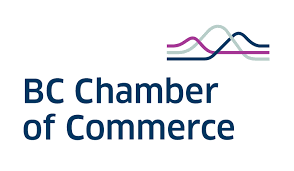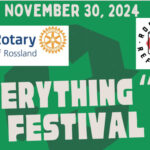INTERVIEW: Mayor Granstrom responds to concerns over revitalization tax exemption bylaw
The proposed revitalization tax exemption bylaw passed third reading before council this past Monday night and will be up for adoption on October 18th at the next regular council meeting. Discussion around the council table as well as around the community lately, however, has shown that there are still a number of questions out there from people striving to fully understand the new bylaw. In effort to answer some of those questions and make sure the accurate message is getting out to the public, Mayor Greg Granstrom requested an interview with the Telegraph.
Letters circulated through the press last week and around town making claims about the new tax exemption that weren’t entirely true seem to have raised eyebrows around town . What do you make of these letters?
I read that letter from Rosa and there was an anonymous one going around mailing lists before that one too. It’s really disappointing when you see people use whatever means they can to fearmonger. They kind of make it out like members of council are somehow going to become millionaires by helping developers and that we’ve got some sinister motivations. I can plain and simply tell you, and I find it hard that I have to tell people that that is simply not the reality we live and work in as councilors and mayor.
What do you say to critics who suggest this program is nothing more than a way to subsidize developers with tax payer dollars?
This revitalization bylaw isn’t going to affect a whole bunch of people and we’re not talking about a whole bunch of money here. If, say, Clancy’s wanted to improve the façade of their building, what usually happens is that once the approval goes through, all we’re saying in this bylaw is, ‘please go ahead and fix up your building’. It’s good for employment and a bunch of neat things and the city will phase in the tax increase only on those improvements over those five years with a chance for ten. The business gets a chance to recoup and see some return on their investment before they are brought back up to full taxation on the improvements. It’s at no cost to the tax payer because if they didn’t make that investment their assessment would be the same anyway.
For example, if a building assessed at $100,000 does $10,000 in improvements to their building, that additional $10,000 in improvements will not be taxed for the first five years with the option of phasing it in over the next five years.
How do you see this program fitting in with Rossland’s overall effort to revitalize and grow the city?
It’s not the silver bullet to solve all of our problems, but it’s one piece of the puzzle. The amount of people that take advantage of it may not be that large but at the same time it shows that council is aware of what’s happening in the town and want to see the town revitalized and fixed up.
Rather than providing an inventive to developers, the Mayor hopes it takes down a disincentive to fix up buildings and that, ultimately, it fosters even greater community pride.
It provides the incentive to give people the opportunity fix up their buildings and not be faced with immediately higher assessments and taxation. There is financial side to it, but there is also a pride aspect, you know. You might think if I fix up the front of my building for $10,000 or more that would be nice but if my taxes will go up then what’s my motivation ,right? So it’s an incentive that way and it’s also I think a way for people to show pride in their building and the city to show pride in its downtown.
Some people and councilors have questions about whether the tax exemption should be made specifically for the downtown core rather than for the entire city limits to prevent sprawl and really revitalize the downtown. How do you feel about people who say including the entire municipality will encourage sprawl rather than densification or that it should just target environmental upgrades to buildings?
If they did something at Red or Redstone outside of the downtown core, that would be significant and that would be a good thing for town for sure. If there was an incentive for them to do some new projects through this, how is that bad for town? On the environmental front, I’m not much of a greeny but there were some councilors that wanted to make it specific to green initiatives. I think green initiatives are encompassed in many things that could be done to a building. So while you could target environmental upgrades only, would you need to? First there are building codes and all of that that people can’t do things outside of anyway. I mean if they upgrade things they are not going to put in old technology.
Why should Rossland undertake such a program at this time?
We have to look at where we are, what we have and this is what we have to work with. This is it. There isn’t going to be a magic wand any time soon to deal with the things we say hold back growth. There won’t be a magic wand changing the airport or making us closer to a big centre so let’s deal with that. We’ve been here for a hundred years and we’ll be here another hundred years. We don’t want to dramatically change things with this program but rather provide an incentive as one small part of the overall process. It’s about doing what we can that is positive rather than complaining about why we can’t grow.
What would need to happen for you to consider this program a success?
What I would like to see is on an annual basis, one two or three applications. We’re not going to see a lot, but if there were a few each year that said, ‘this $10,000 improvement is significant and this program will help me go forward with improving my family’, that would be great. We don’t want to see a boom development. I’d love to have the city move forward together and have some activity with some new people coming in rather than sitting here and stagnating between boom and bust cycles.
What’s your final sales pitch to residents on why this is a good program for Rossland?
What we’re trying to do is encourage pride in community. We’re trying to encourage investment in existing buildings and businesses. What we’re trying to do is say that the city will facilitate that at no cost to the tax payer. If your investment causes your assessment to go up, the tax part of that investment will be phased in after five years.
What were saying to the business owner is, ‘please invest in your properties and your businesses and if that affects your assessment adversely we will phase that in over a five year period’.
If this was a project you were going to do anyway but were hedging because of the assessment this is designed to make it easier for you to undertake that project, to upgrade your buildings or business and make the town a nicer place–all at no cost to the taxpayer.
Our downtown right now is pretty stellar. It wouldn’t take many more dollars to really take it to the next level. Hopefully, some people can tie in to our downtown Columbia rebuild with this program and really make a nice change downtown. I was on the executive board of the Eagles for a long time and we’ve talked about putting a balcony on the front of this place like the buildings on Washington Street have. Stuff like that could be helped with a bylaw like this. Can you imagine how cool that would be?
The Revitalization Tax Exemption Bylaw has now passed third reading and will come before city council at their next regular meeting on October 18th for consideration of adoption.


























